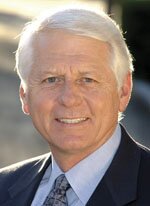Southern Fried Religion (AKA: Gospel Inoculation)
 By heritage, birth, and address, I am a Southerner. I have only lived 3 years of my life outside of the South. I went to college at an SEC school (Miss. St., but am a huge LSU fan) and totally get college football. I love Southern cooking, Southern history, and fell in love with a Southern girl. All of my children have Southern accents. I am a distant relative of Robert E. Lee (but, aren't all Southerners?) and a direct descendent of 5 brothers who rode with the 17th Mississippi Calvary in the Civil War. I get misty eyed when I hear "Dixie," still emotionally regret that we couldn't get the job done at Gettysburg, and think that Sherman was quite the jerk for burning up the South on his march to the Atlantic. I am a Republican and am quite conservative politically. I love Elvis, blues, and pork bbq. I am a Southern Baptist and have been raised on white-hot, revivalist religion my whole life and I love the way that there is a major focus on children and family in the South.
By heritage, birth, and address, I am a Southerner. I have only lived 3 years of my life outside of the South. I went to college at an SEC school (Miss. St., but am a huge LSU fan) and totally get college football. I love Southern cooking, Southern history, and fell in love with a Southern girl. All of my children have Southern accents. I am a distant relative of Robert E. Lee (but, aren't all Southerners?) and a direct descendent of 5 brothers who rode with the 17th Mississippi Calvary in the Civil War. I get misty eyed when I hear "Dixie," still emotionally regret that we couldn't get the job done at Gettysburg, and think that Sherman was quite the jerk for burning up the South on his march to the Atlantic. I am a Republican and am quite conservative politically. I love Elvis, blues, and pork bbq. I am a Southern Baptist and have been raised on white-hot, revivalist religion my whole life and I love the way that there is a major focus on children and family in the South.
I'm saying all of this to say that I get the Southern thing. I get the culture, the people, the values, and the expectations. I understand that we have this inferiority complex because we are the only Americans to have ever been defeated in war and occupied and we still can't get over it. The whole Civil War thing is transferred to discussions about whether SEC football is better than Big Ten football and we all cheer when Alabama beats Notre Dame or Florida beats Ohio St or we happen to attract a foreign auto plant. We always seem to have something to prove to ourselves and everyone else and it comes out through bragging about our accomplishments and an "everyone's out to get us" and, "they just don't understand" attitude.
I also get that we have lots of problems. We have a pretty miserable track record on the race issue, and it seems to be something that we just want to put behind us instead of dealing with it in constructive ways. After the Civil Rights movement of the 1950's - 1970's, an uneasy truce has been brokered and everyone just wants to move on. But, are we making progress? Sometimes yes, other times, absolutely not. We also lead the nation in divorce, alcoholism, crime, incarceration per capita, and many other negative social indicators. On most national lists regarding education, income, healthcare, state government, etc., the bottom of the rankings are predictably filled by Arkansas, Louisiana, Mississippi, and Alabama. A few years ago, there was a tax initiative in Alabama that was voted down. The purpose was to relieve the tax burden off the poor and bring more equity to the system, since there is little property or state income tax. The surplus was to go to state infrastructure and to education, both of which are woefully underfunded. The slogan of the opposition was "We're Taxed Enough!" Alabama is 50th in taxes paid by citizens in the U.S. Oh, and the opposition was led by the state's Christian Coalition on a "family values" platform.
Which leads me to my question: How is religion, particularly the Baptist faith, bringing change to the South? How is the South becoming more God fearing and righteous because of our presence? How are we making a difference? Have we become so enculturated that we are no longer able to bring change? It seems to me, from my experience here, that we are eaten up with materialism and a "live for the present" mentality. We have bought into the Suburban American Dream and we are lapping it up as quickly as possible. When I talk with most people about Jesus, they already claim to know Him or have prayed a prayer and are saved. But, their lives are no different and they don't see any need to connect with a church. Sunday's are spent at the lake with family. As long as people are "good" or "moral" we seem to have no problem with them, and we save our ire for liberals or Hollywood. I live in a state where 77% agreed with Roy Moore over the Ten Commandments, but only around 30% go to church. Why the disconnect?
I wonder if we have presented a gospel that is so based on personal experience and decision that we have led people away from a TRUE relationship with Jesus and into real danger? Have we inoculated people against the gospel by presenting them a "gospel" that so reinforces our culture that people see no real difference in us? And, I am not talking about the "sinful" Hollywood culture. I am just talking about the world system that we live in here in the South (make money, be happy, live a good life, have fun, protect yourself from "those kinds of people," be upwardly mobile, be independent, live for yourself, etc.). Are we capable of bringing about change in people's lives, in our communities, and in our region? What would revival really look like? What would happen if there was true racial reconciliation? What would happen if people who claimed to know God, but never gathered with His people, changed? What would happen if our churches started treating the epidemic of divorce in our communities as a real problem, instead of just glazing over it? What would happen if, instead of propping up much of Southern genteel society and culture, we actually began to confront some of our hypocrisies and inconsistencies?
I fear that we have lost our prophetic voice in our own land and it happened a long time ago. With a church on every corner, what would have happened if Southern Baptists had been convicted by Scripture and the Holy Spirit and had led the way on the race issue, instead of coming behind, kicking and screaming? Would the social rebellion of the 1960's have happened? Would we have lost our voice and had to have aligned ourselves with a political party to be listened to? Would be be trying to "take back America," or would we have ever lost it? There is a price to pay for being on the wrong side of history, especially on moral issues, and we are paying it now. Maybe the problem isn't with the news media, Hollywood, Gays, Democrats, or the Big Ten. Maybe the problem is with us. Maybe we have become so comfortable in our Southern, religious cocoon with our mega churches, conferences, Lifeway's, and Christian radio, that we have failed to realize that our influence for Christ has shrunk to negligible levels. Everyone thinks that they know Jesus, and when they look at us, they don't see a huge difference. So, why should they change? Why repent? We don't have a compelling answer, except that our theology is right and they had better believe it, or else. It seems that the early church had a bit more going for them than that.
Maybe these are just some ramblings on a Friday afternoon. Admittedly, this is not a very well thought through essay, but more of a stream of consciousness type thing. But, as I continue to try to be a Christian and lead a church in the Deep South, I find that our cultural accomodation really hampers us from being the prophetic witness that God has called us to be. What will it take for revival to come? We desperately need it. Maybe we need to look at the cultural and spiritual rot in our own region before we wage Culture Wars against others.
What do you think? More later . . .








 Yesterday, I ran across an interview that outgoing SBC President Dr. Bobby Welch gave after the convention in Greensboro (HT: John Stickley). As many of you know, there was a resolution that was passed against the consumption, use, manufacturing, and sale of alcoholic beverages. Obviously, every Baptist is against drunkeness and agrees with the Biblical prohibitions regarding that issue. That is not what the debate has been about. The debate has concerned whether it is permissable for a Christian to have even a glass of wine on a rare occasion. The resolutions says "No." Many have countered the resolution by pointing out that there is no Biblical injunction against having a small amount of alcohol in moderation and even Jesus turned water to wine. Anyway, it has been a big debate and I have been kind of bored by it because everyone just snipes at each other and no one really listens, it seems. I have tried to stay out of this debate to follow the admonition of
Yesterday, I ran across an interview that outgoing SBC President Dr. Bobby Welch gave after the convention in Greensboro (HT: John Stickley). As many of you know, there was a resolution that was passed against the consumption, use, manufacturing, and sale of alcoholic beverages. Obviously, every Baptist is against drunkeness and agrees with the Biblical prohibitions regarding that issue. That is not what the debate has been about. The debate has concerned whether it is permissable for a Christian to have even a glass of wine on a rare occasion. The resolutions says "No." Many have countered the resolution by pointing out that there is no Biblical injunction against having a small amount of alcohol in moderation and even Jesus turned water to wine. Anyway, it has been a big debate and I have been kind of bored by it because everyone just snipes at each other and no one really listens, it seems. I have tried to stay out of this debate to follow the admonition of 
